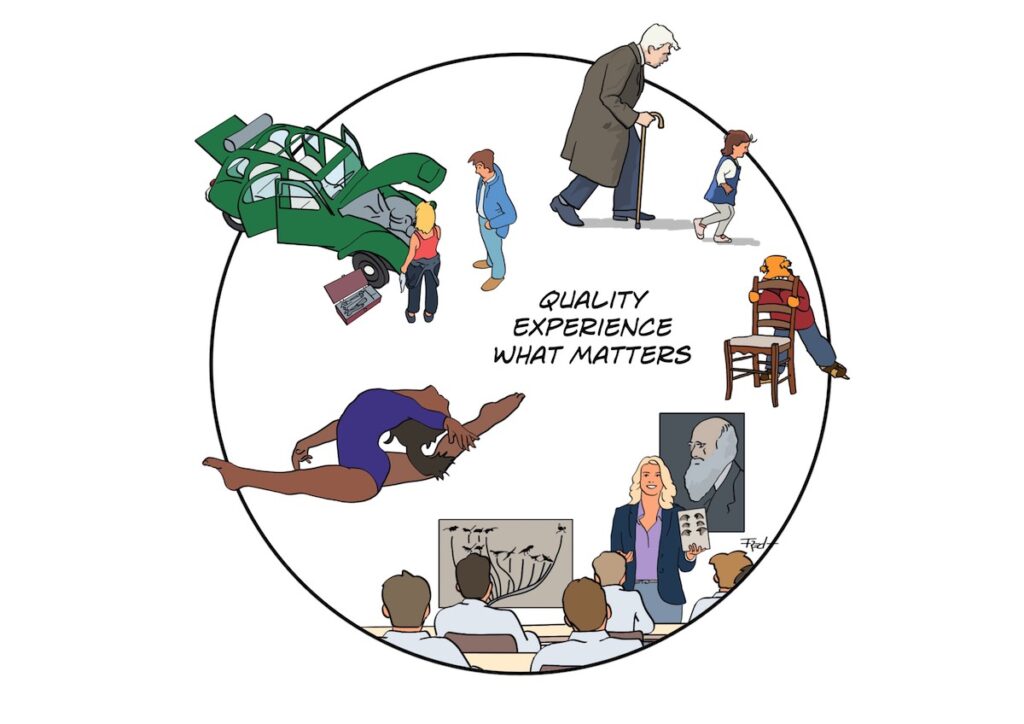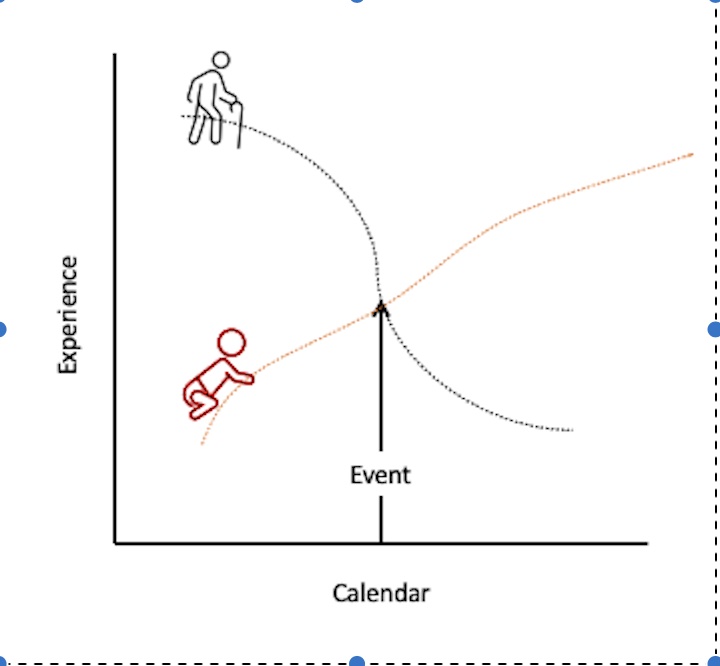The dominance of dualism in Western culture is reflected in the fact that the discussion of reality was framed around two separate circles - one for mind and the other for matter. However, there is another possible framing of the question. Consider the possibility that there is only a single reality which is a joint function of BOTH mind AND matter.

This is the position that was preferred by the American Philosopher and Psychologist, William James. He called this single reality that was BOTH subjective AND objective “experience.” Robert Pirsig, author of Zen and the Art of Motorcycle Maintenance and Lila, came to a very similar conclusion. He called the joint function of mind and matter “Quality.” We have come to believe that this quality or experience is “What Matters” when it comes to reality.
An important implication of this alternative framing of the question of reality is that our experiences are real. That although two people might experience the same event differently. Their experiences are real. The experiences are more real than the ticks on the clock or the ticks on a ruler that we use to map them.
For this position to make sense, it is necessary to accept that the various experiences of different people are all real. Rather than dismissing the differences as subjective biases, consider that the differences are differences of perspective or context. Consider that reality and experience are more than a collection of isolated points in time, but rather they are trajectories flowing over time. And thus, the same point will be experienced differently depending on the larger context – the trajectory over time (or life-line) that it is part of.

This also requires that we reconsider how we frame questions of time. Rather than thinking about the ticks of the clock as a reality that is extrinsic to our experiences, we might start with the idea of motion or flow of activity as an intrinsic property of our experience. Clocks are useful tools for synchronizing our motions with the people and objects around us – but the flow is the reality. The flow is the context that grounds events and moments of experience in reality.
